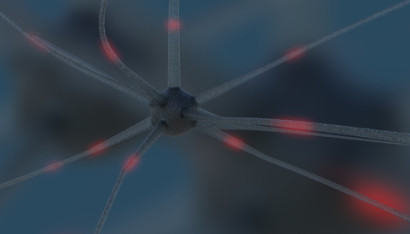News
Scientists find “alcohol neuron” in brain

A discovery by researchers at Texas A&M builds on the known role of dopamine as a driver of addiction by pinpointing the reactions of specific neurons. This new information could eventually be the key to developing new treatments for alcoholism.
The study, which used an animal model, found that heavy alcohol consumption changes the physical structure and function of neurons in a part of the brain involved in goal-driven behaviours. Medium spiny neurons in this part of the brain, called the dorsomedial striatum, have two types of dopamine receptors, D1 or D2. D1 neurons compel action while D2 neurons inhibit action.
When activated by alcohol, the dopamine D1 receptor increases the desire to drink. Drinking large amounts of alcohol can alter the structure of D1 neurons and make them more easily excitable, requiring less and less stimulation to activate, which leads to more drinking. “Even though they’re small, D1 receptors are essential for alcohol consumption,” said lead researcher Jun Wang, M.D., Ph.D, an assistant professor in the Department of Neuroscience and Experimental Therapeutics at the Texas A&M College of Medicine.
The alteration in the D1 receptors leads to a vicious cycle: drinking alcohol leads to easier activation, activation leads to drinking. “If these neurons are excited, you will want to drink alcohol,” Wang said. “You’ll have a craving.”
However, when the mice in the study were given a drug to block the D1 receptor, it reduced their desire to drink.
“If we suppress this activity, we’re able to suppress alcohol consumption,” Wang said. “This is the major finding. Perhaps in the future, researchers can use these findings to develop a specific treatment targeting these neurons.”
The study, published in the Journal of Neuroscience, was co-authored with researchers from the University of California San Francisco, and was supported by a grant from the National Institute on Alcohol Abuse and Alcoholism (NIAAA).
Links
Original study abstract in the Journal of Neuroscience>
News release from Texas A&M University>
Update: In a subsequent 2016 study, the scientific group who found in 2015 that the activation of D1 neurons increases the desire to drink have now discovered that D2 neurons inhibit drinking behavior.